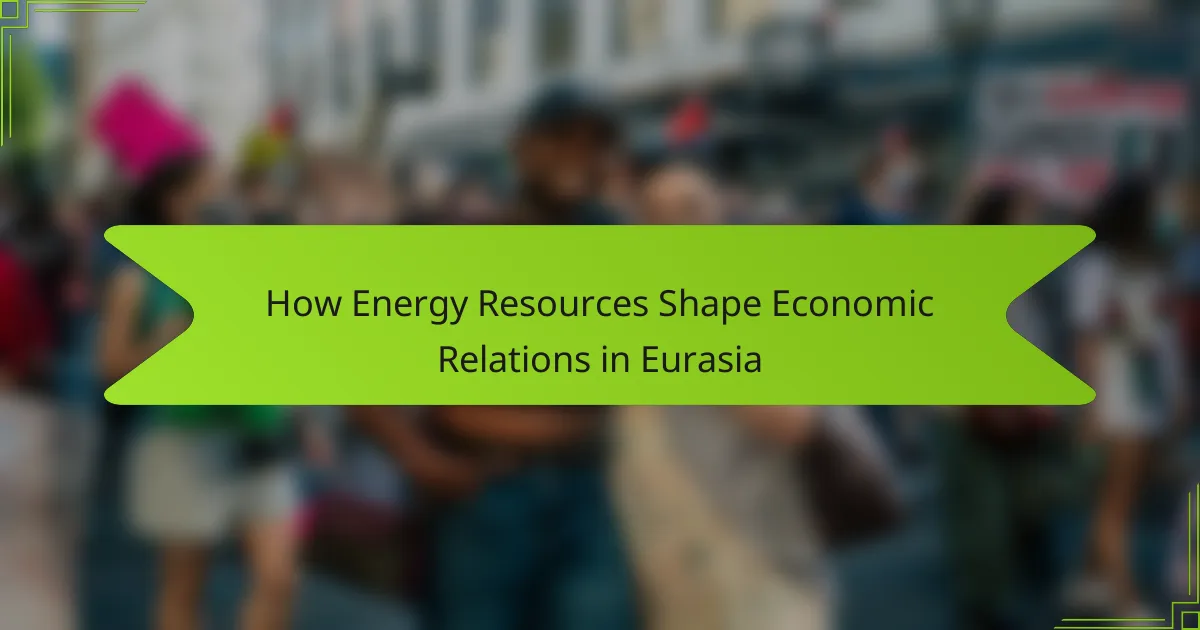Energy resources, including fossil fuels, renewable energy sources, and nuclear energy, are essential natural substances used for energy production and significantly influence economic relations in Eurasia. Countries such as Russia, China, and those in Central Asia utilize their energy resources to enhance trade, investment, and geopolitical standing. The article examines how these resources shape regional […]
Welcome to EurasiaCritic
At EurasiaCritic, we provide insightful analysis and the latest updates on the ever-evolving political landscape of Eurasia. Whether you are a scholar, a policymaker, or simply an interested reader, our platform is designed to keep you informed about the complex interconnections and dynamics that shape the region. From economic trends to geopolitical tensions, our content is tailored to enrich your understanding of this diverse and strategically significant area of the world.
We are committed to delivering reliable and timely news, ensuring that you stay ahead of the curve. Our team of experienced journalists and analysts works diligently to present diverse perspectives, fostering informed discussions and encouraging critical thinking. Join us as we explore the stories that matter and the issues that impact the future of Eurasia.
Explore Key Features
- In-depth Political Analysis
- Timely News Updates
- Expert Opinions and Commentary
- Regional Economic Trends
- Interviews with Key Figures
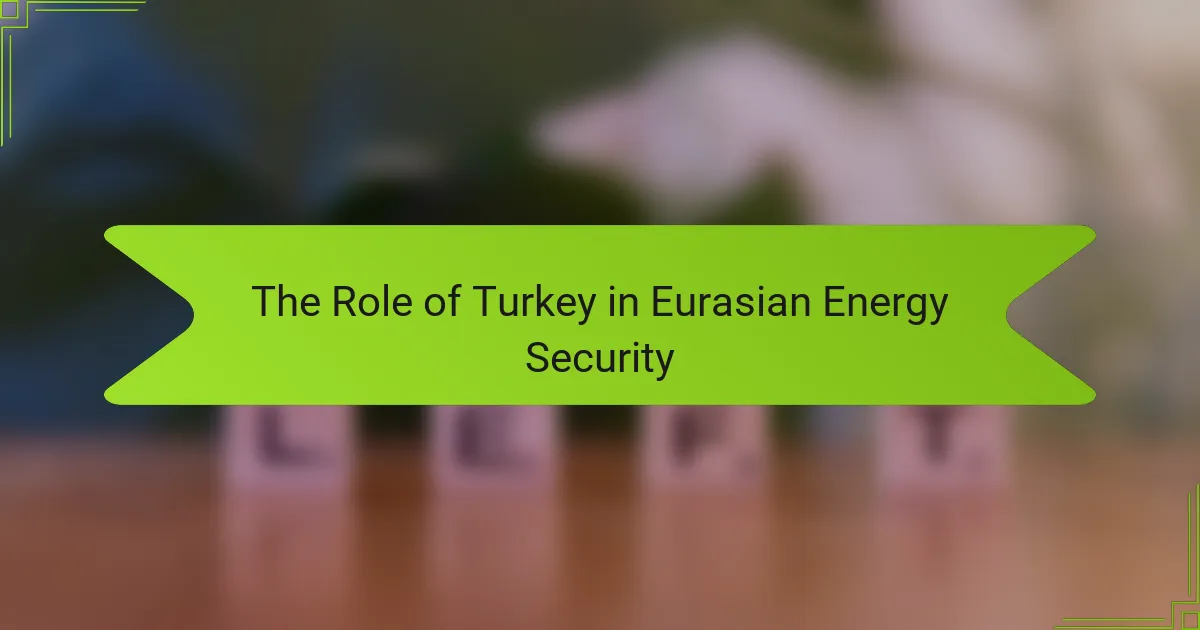
The Role of Turkey in Eurasian Energy Security
Turkey serves as a pivotal transit country in Eurasian energy security, connecting energy-rich regions in the Caspian Sea and the Middle East to European markets. Key pipeline projects, such as the Trans-Anatolian Natural Gas Pipeline (TANAP) and the Southern Gas Corridor, play a significant role in enhancing energy diversification for Europe by decreasing dependence on […]
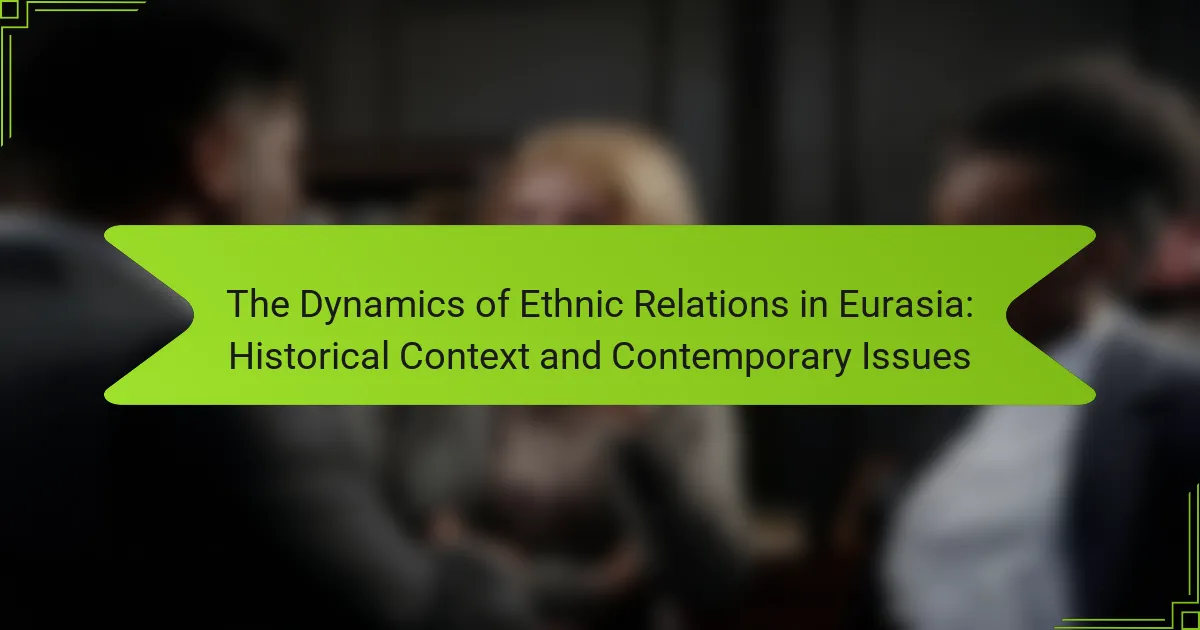
The Dynamics of Ethnic Relations in Eurasia: Historical Context and Contemporary Issues
The article examines the dynamics of ethnic relations in Eurasia, focusing on historical legacies, economic disparities, and political governance as key influencing factors. It highlights how the dissolution of the Soviet Union has led to ethnic tensions, exacerbated by competition for limited resources and varying political systems. Contemporary issues such as ethnic conflict, nationalism, and […]
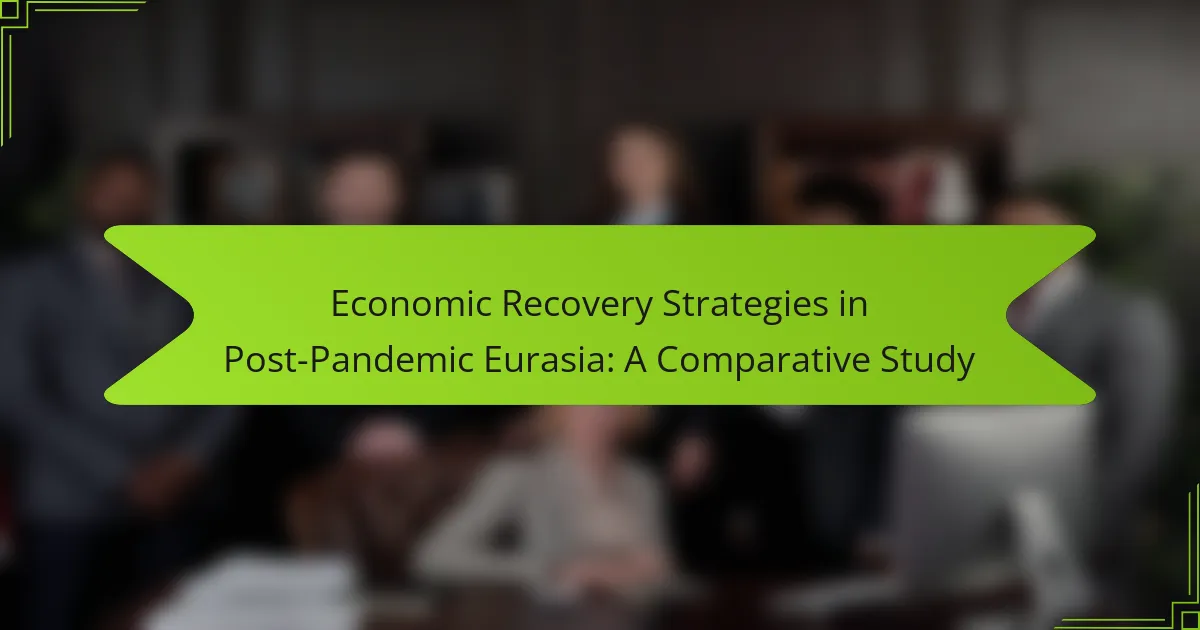
Economic Recovery Strategies in Post-Pandemic Eurasia: A Comparative Study
Economic recovery strategies in post-pandemic Eurasia focus on fiscal stimulus, infrastructure investment, and support for small and medium enterprises (SMEs). Governments are implementing fiscal stimulus packages to enhance economic activity, with significant budgets allocated for public health and recovery efforts. Infrastructure projects are prioritized to create jobs and stimulate growth, while financial aid for SMEs […]
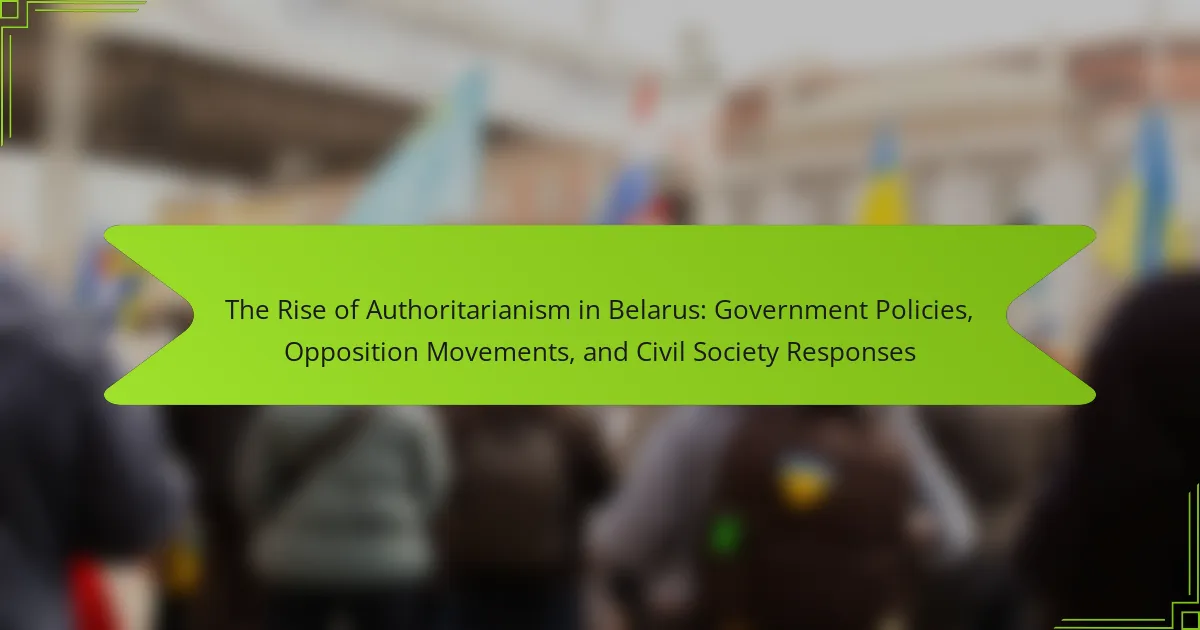
The Rise of Authoritarianism in Belarus: Government Policies, Opposition Movements, and Civil Society Responses
The article examines the rise of authoritarianism in Belarus, primarily driven by government repression, lack of political pluralism, and economic control under President Alexander Lukashenko. It discusses the systematic suppression of dissent, including the imprisonment of political opponents and restrictions on media freedoms, particularly following the fraudulent 2020 presidential election that sparked widespread protests. Key […]
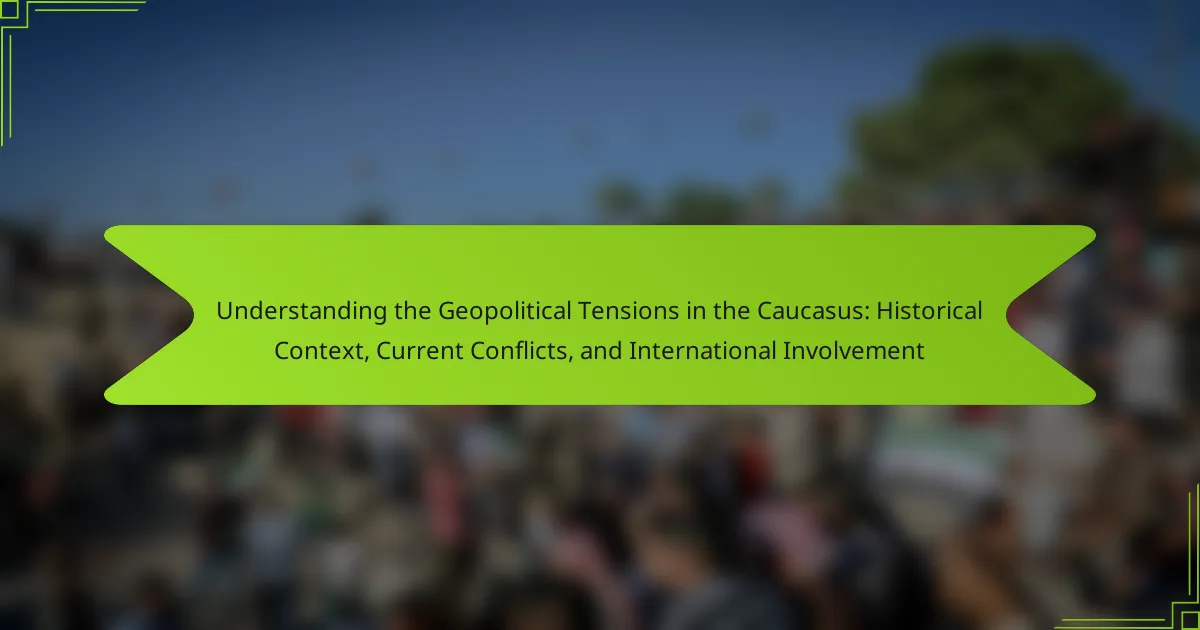
Understanding the Geopolitical Tensions in the Caucasus: Historical Context, Current Conflicts, and International Involvement
The Caucasus region, comprising Armenia, Azerbaijan, and Georgia, is characterized by complex geopolitical tensions stemming from territorial disputes, ethnic conflicts, and historical grievances. A prominent issue is the Nagorno-Karabakh conflict, a long-standing dispute between Armenia and Azerbaijan with roots in the Soviet era, leading to multiple wars and ongoing contestation over sovereignty. The involvement of […]
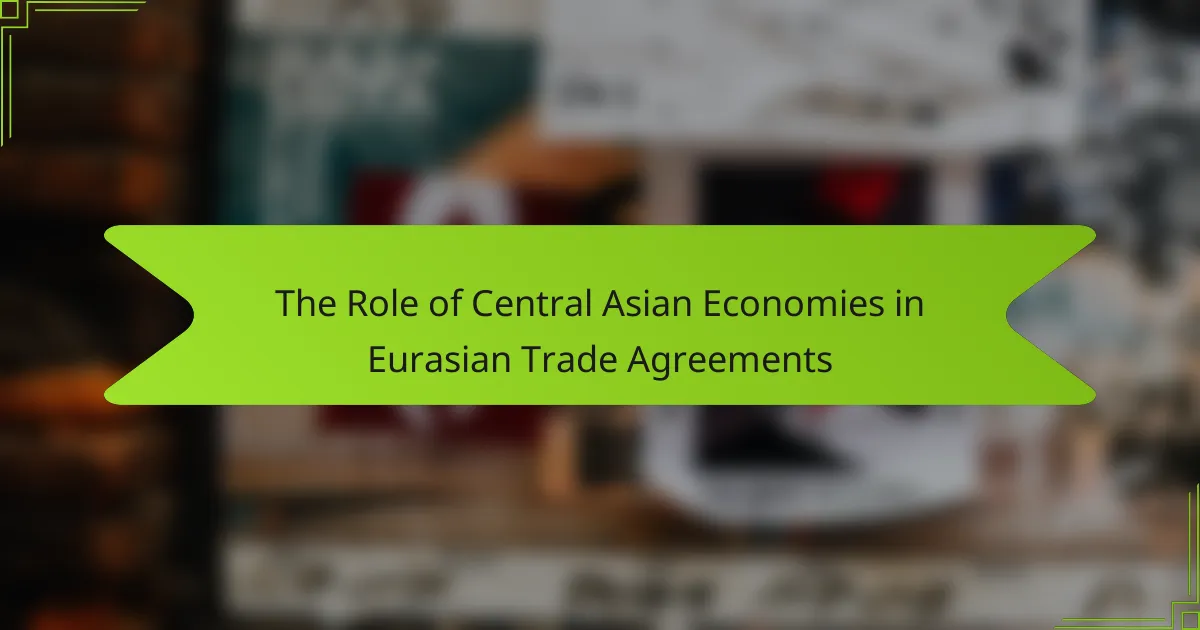
The Role of Central Asian Economies in Eurasian Trade Agreements
Central Asian economies, including Kazakhstan and Uzbekistan, are integral to Eurasian trade agreements, acting as vital transit hubs between Europe and Asia. These countries leverage their abundant natural resources to enhance their negotiating power within frameworks such as the Eurasian Economic Union (EAEU) and the Shanghai Cooperation Organization (SCO). Participation in these agreements fosters regional […]

Ukraine’s Political Crisis: Causes, Effects, and International Responses
Ukraine’s political crisis is characterized by a complex interplay of corruption, historical ties to Russia, and ethnic divisions, which have led to widespread dissatisfaction and unrest. The 2014 Euromaidan protests marked a significant turning point, highlighting the deep-seated issues within governance and public trust. The ongoing conflict has resulted in severe economic decline, soaring inflation, […]
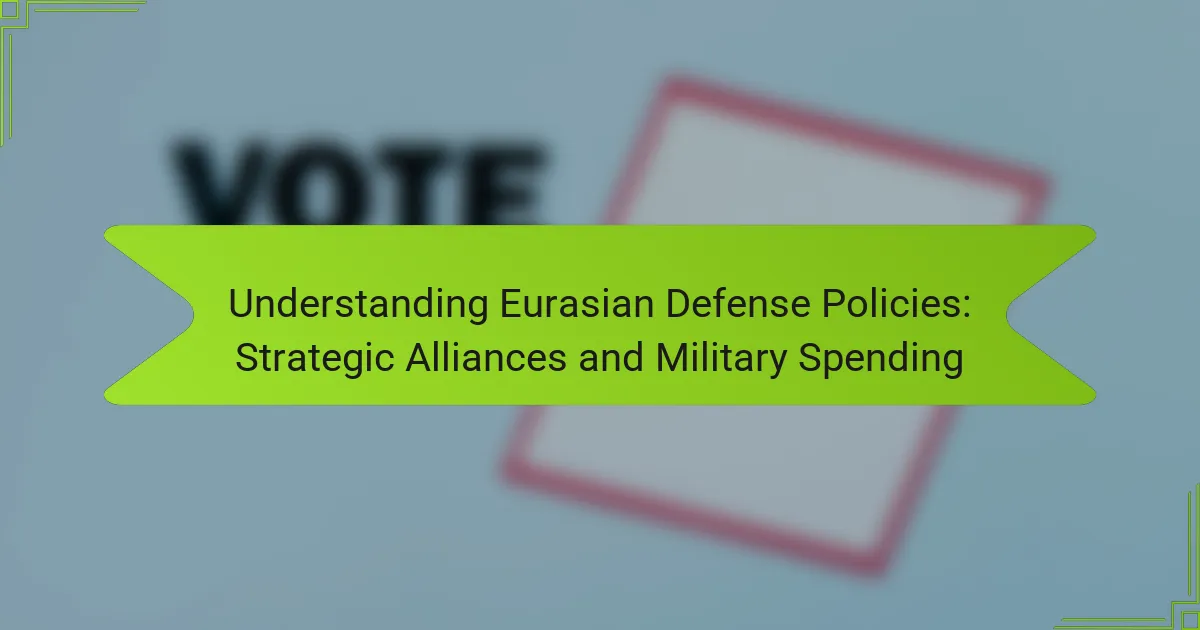
Understanding Eurasian Defense Policies: Strategic Alliances and Military Spending
Eurasian defense policies encompass strategic alliances, military spending, and regional security cooperation, with the Collective Security Treaty Organization (CSTO) exemplifying key partnerships. Significant disparities in military spending exist among Eurasian nations, particularly with Russia’s focus on modernization. The landscape is shaped by common security threats, including terrorism and border security, while challenges such as geopolitical […]
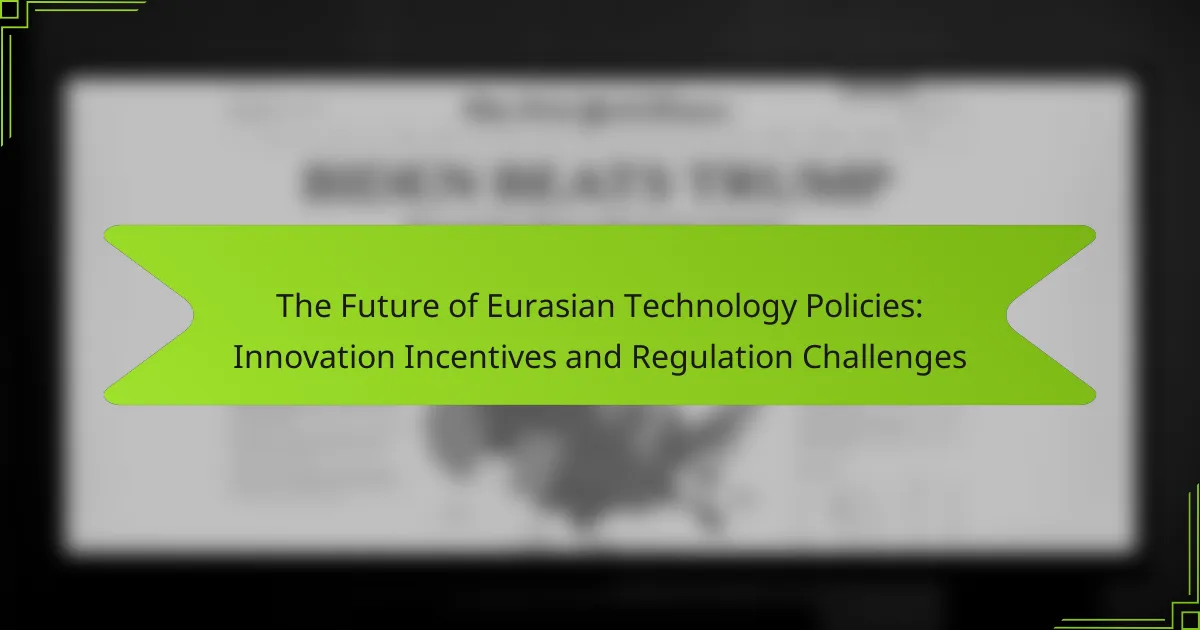
The Future of Eurasian Technology Policies: Innovation Incentives and Regulation Challenges
The article examines the evolving landscape of technology policies in Eurasia, focusing on key elements such as innovation promotion, regulatory frameworks, and international collaboration. It highlights the importance of enhancing research and development capabilities while ensuring compliance with data protection and cybersecurity standards. The analysis includes the role of stricter regulations and incentives for innovation, […]
